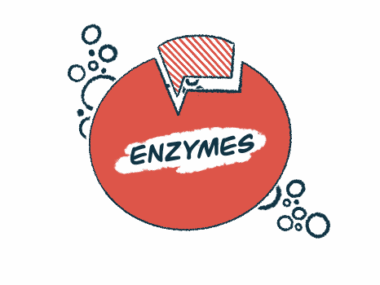Clinical testing set for possible first-in-class generalized MG therapy
Trial of IGM-2644, an immune T-cell engager therapy, to start by year's end
Written by |

A Phase 1 clinical trial for IGM-2644, a potential first-in-class immune T-cell engager therapy for generalized myasthenia gravis (gMG), should begin by the end of the year, said its developer IGM Biosciences.
“Our early pivot to using T-cell engagers in autoimmune disease has enabled significant progress on these programs at IGM,” Mary Beth Harler, MD, IGM’s new CEO, said in a company press release.
MG is caused by autoantibodies, or self-reactive antibodies, that target and damage proteins at the neuromuscular junction where nerve cells communicate with muscle cells. Common symptoms include muscle weakness in the arms and legs, double vision, drooping eyelids, and problems speaking, swallowing, and breathing. The autoantibodies that drive MG are produced by immune B-cells. Targeting and reducing the number of these cells in the bloodstream is a common approach to treating many autoimmune diseases, including MG.
Standard antibody-based therapies that target B-cells use a class of antibodies called immunoglobulin G (IgG), which fail to effectively deplete the number of B-cells deep within tissues and have a limited effect on cells that produce low levels of target proteins, such as mature B-cells that produce autoantibodies.
What is IGM-2644?
Developed for multiple myeloma and lymphoma, two types of blood cancer, IGM-2644 uses a class of antibody called immunoglobulin M (IgM) that’s designed to bind to CD38, a protein found at high levels on autoantibody-producing B-cells, and CD3 on T-cells. Engaging with CD3 activates T-cells to kill B-cells, making for a unique mechanism of action.
Moreover, unlike standard IgG-based therapies that have one or two target binding sites, IgM-based IGM-2644 has 10 anti-CD38 binding sites that should enable the therapy to eliminate autoantibody-producing B-cells deep within tissues, including those that have low target protein levels.
In a recent webcast, IGM presented data on the impact of IGM-2644 on multiple myeloma cells that have high levels of CD38 and on lymphoma cells with medium levels of the protein. They compared it to daratumumab, an anti-CD38 IgG-based therapy sold as Darzalex, that’s approved for myeloma.
Data showed IGM-2644 was at least 10 times more potent than daratumumab across both cell lines because a much lower concentration of IGM-2644 could kill the same number of cells as daratumumab. IGM-2644 has also been evaluated in a small group of myeloma patients.
The company is also developing imvotamab, a T-cell CD3-engaging IgM antibody that targets CD20, a protein also on B-cells, for other autoimmune diseases, including lupus, rheumatoid arthritis, and myositis. IGM suggests imvotamab and IGM-2644 may be used in sequence or in combination for severe or hard-to-treat autoimmune diseases, or with people who aren’t able to access CAR T-cell therapies.
“We’ve made great progress in our clinical development of imvotamab in autoimmune indications and we believe the clinical and, ultimately, commercial, potential of our pipeline of T-cell engaging antibodies in treating autoimmune diseases is significant,” Harler said.




Leave a comment
Fill in the required fields to post. Your email address will not be published.